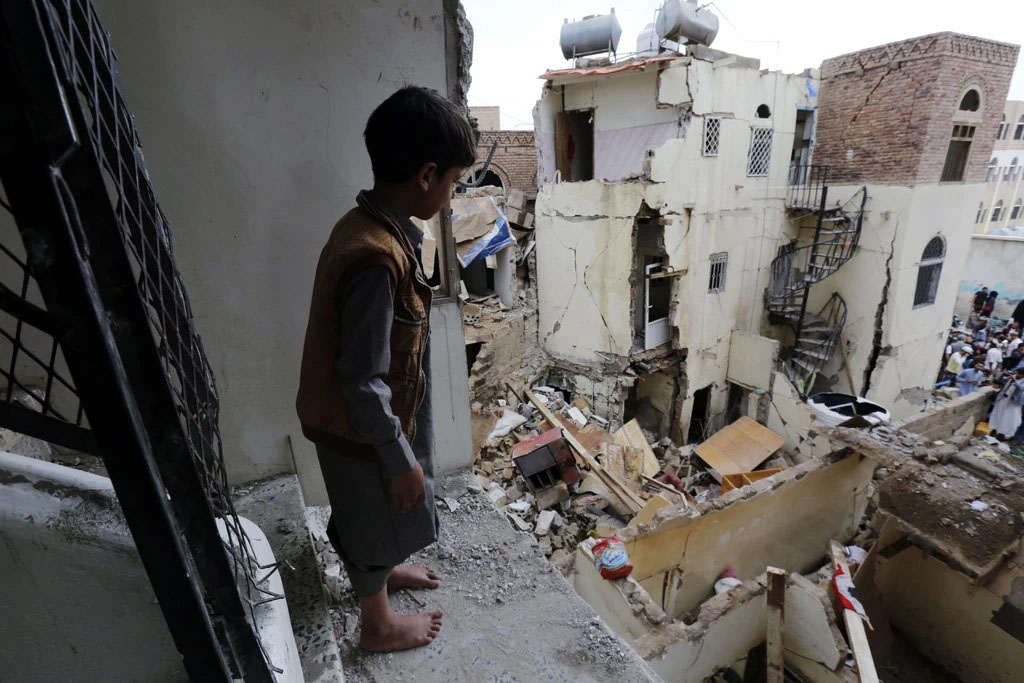Today (Tuesday 13 July), the House of Commons approved the Tory government’s planned cuts to foreign aid. The cuts from 0.7% to 0.5% of the budget will see a reduction of around £4 billion, with the government justifying the decrease by blaming the pandemic.
The cuts have been widely criticised, with a UNICEF statement this April saying: “It is too soon to know the full impact that this and future UK funding cuts will have on UNICEF programmes. However, we worry that children living in some of the world’s worst crises and conflicts will suffer the consequences.” As well as this, the International Rescue Committee says that its ongoing work in Syria has suffered, with as much as 75% of funding reduced compared to last year.
The potential damage of these cuts has led some Tory MPs to rebel against the government, with up to 50 Conservative MPs echoing the concerns of opposition parties. One such Tory MP, Andrew Mitchell, said: “Every MP in the House of Commons stood on a very clear promise to stand by 0.7%. What is being proposed may not return Britain to the commitment for decades to come.”
The United Nations Population Fund has also shared it’s concerns in a statement by their Executive Director, Natalia Kanem: “These cuts will be devastating for women and girls and their families across the world. With the now-withdrawn £130 million, the UNFPA Supplies Partnership would have helped prevent around 250,000 maternal and child deaths, 14.6 million unintended pregnancies and 4.3 million unsafe abortions.”
Conservative David Davis argued that the current proposals are likely to cause the deaths of 100,000 children, suggesting that some ministers have been privately encouraging the rebels within the party.
Rishi Sunak sought to dissuade such rebels with a statement on Monday (12 July) evening, laying out his plans to increase spending back to 0.7% once the government is no longer borrowing for it’s day-to-day costs, saying: “If the house approves the motion, recognising the need to manage the public finances responsibly and maintaining strong investment in domestic public services like the NHS, schools and police, then the government will continue with the approach set out in this statement.”
Of course, this statement rings hollow, with the notion of “maintaining strong investment in domestic public services” particularly laughable from a ruling party that spent a decade pursuing austerity, and continues to withhold the necessary investment for effective education, social work, NHS and many other community services. The rebel MPs within the Conservatives appear similarly disingenuous, only now caring about the suffering of the disadvantaged around the world when so much of this suffering was caused by these Conservatives and their support for imperialist policies.
In 2019, Afghanistan and Yemen were the third and fourth highest recipients of UK bilateral aid respectively. If these Tory MPs are so concerned about the struggle of people in places like Afghanistan and Yemen, why is it that the very same MPs support a government that caused so much of the harm this aid goes to relieve? The government continues to sell arms to Saudi Arabia, which are then used on innocent Yemeni people. These rebels may signal concern today, but they fundamentally still support the militarism and imperialist interests of the ruling class. The likes of David Davis and Andrew Mitchell should not be applauded for some brave defiance of Sunak, Johnson and Co, but instead challenged as to why they only speak out once the damage is done.
Philip English, is a member of the YCL’s Manchester Branch



